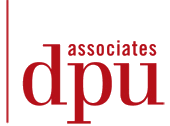
Anna SOAVE
Submitted by frankie on Thu, 2007-02-22 23:11.
Anna Soave
Anna Soave is an architect/urban planner with more than 14 years of professional experience in physical planning, urban upgrading and rehabilitation in response to local needs, particularly in low-income and informal settlements. Recent efforts have included the development of policies and strategies for improving access to affordable land and housing; as well as providing technical assistance to urban management institutions for property registration and land regularisation. Most projects have required the facilitation of stakeholder consultations to ensure appropriate participatory processes. Having worked in several developing countries, including post-conflict situations, her main interests lie in hands-on planning and capacity-building, with a specific focus on applying context-specific and community-responsive approaches for the improvement of dilapidated urban areas. Recently she has also developed an interest in risk-sensitive land use planning, contingency and post-disaster urban management.
Having qualified as an architect in Italy and practiced in design offices in Europe and Mexico, she obtained an MSc in urban planning at the Development Planning Unit (DPU), University College London (UCL). In 2001, she was appointed Coordinator of the DPU’s MSc programme in ‘Building & Urban Design in Development’ (BUDD). For three years she taught modules focusing on the upgrading of low-income urban areas. While at the DPU, she also contributed to the research, design and production of a number of DPU publications for DFID and UN-Habitat.
In 2003 she was offered the opportunity to work in Kabul, Afghanistan, as an urban planner for the Aga Khan Trust for Culture, Historic Cities Support Programme, engaged in the safeguarding and upgrading of its historic quarters. Key tasks have included the oversight of urban planning initiatives in Kabul and Herat in close consultation with ministerial staff, municipal officers and community representatives. This entailed the synthesis and presentation of data and information emerging from physical and socio-economic surveys; the analysis of critical issues related to urban recovery and the preparation of planning documentation and dissemination of awareness-raising material among government counterparts and donors. In 2008, she undertook a final technical assignment for AKTC, funded by the World Bank, specifically addressing historic preservation issues in the formulation of local urban development plans, national policies and procedures.
Between 2009 and 2010, she provided technical advisory services to UN-Habitat/UNDP in Iraq for the enhanced slum upgrading and capacity building support initiative in Erbil (Kurdistan) implemented within the framework of its ‘Strengthening the Capacity of the Housing Sector in Iraq’ Project. This task implied the review of current planning and building practices in formal and informal areas in order to draft recommendations for improved and more affordable housing design and construction processes, as well as institutional development. In parallel, she was contributing pro-bono to the development of viable strategies for the revitalisation of the walled city of Harar Jugol, in Ethiopia, in support of the efforts of the Jugol Revitalization Program Coordination Office and Harar Bureau of Trade, Industry and Urban Development.
In 2011, while teaching a one-month urban planning course at the Faculty of Architecture at Kabul University, Anna was recruited for the position of Component Manager for USAID’s 36-month Land Reform in Afghanistan (LARA) Project implemented by US-based consultancy agency TetraTech/ARD. Over the next 22 months, she provided support the Ministry of Urban Development Affairs (MUDA), the General Directorate of Municipal Affairs (IDLG/GDMA) and Jalalabad Municipality, by leading the upgrading and formalization of two informal settlements in Jalalabad and provided technical assistance for the write up of a ‘National Policy for the Upgrading of Informal Settlements’ (2013) and the drafting of reports, manuals and guidelines, such as the ‘Informal settlements development guidelines: A framework for the scaling-up of physical upgrading and regularization efforts’.
Most recently, Anna has completed yet another consultancy in Afghanistan, as a Process Analyst/Technical Writer for USAID’s 36-month RAMP UP North project (Regional Afghan Municipalities Program for Urban Populations – Regional Command-North), implemented by US-based agency DAI International. She provided support to the team by writing up technical documents, including: a ‘Property Registration Handbook’, a ‘Citizen Satisfaction Survey Report’, Activity Reports, three Municipal Economic Profiles, and a series Project Success Stories for USAID.
Published and unpublished work on urban development includes: ‘Property Registration Handbook’, USAID’s RAMP UP North Project (2014); ‘Informal settlements development guidelines: A framework for the scaling-up of physical upgrading and regularization efforts’, USAID’s Land Reform in Afghanistan Project (2013); ‘Urban Upgrading Manual for Informal Settlements’, USAID’s Land Reform in Afghanistan Project (2013); ‘Step-by-step 5-year plan of action and hands-on technical assistance in support of the Department for the Safeguarding of Afghanistan’s Urban Heritage (DSAUH) of the Afghan Ministry of Urban Development’, World Bank/AKTC (2008); ‘Identification and write-up of a series of optimal physical upgrading procedures to be applied in historic urban areas’, World Bank/AKTC (2008); “Kabul: A City in the Making”, in Parametro, no. 272, Nov/Dec 2007; “Urban Conservation in the Historic Neighbourhoods of Kabul”, in Aga Khan Historic Cities Programme, Urban Conservation and Area Development in Afghanistan, AKTC, Lausanne, 2007; “The Historical Neighbourhoods of Kabul: Planning Efforts and Negotiation Processes” in Mumtaz B. & Noshis K.(2004), in Development of Kabul: Reconstruction and planning issues, 10th Architecture & Behaviour Colloquium, Monte Verità, Comportements, Lausanne; and “San Isidro Neighbourhood, within Old Havana (Cuba): An Integrated Community Project”, in Turath: Old City of Jerusalem Revitalisation Program, 2000; as well as compiling and editing publications that include: Understanding Slums: 40 Case Studies for the UN Global Report 2003, UN-HABITAT (2003); Sustainable Urbanisation: Bridging the Green and Brown Agendas, London; Allen A., You N. et al (eds), DPU-DFID, London 2002; Implementing the Habitat Agenda: In Search for Urban Sustainability, Wakely P., You N. et al (eds), DPU-DFID, London, 2001.
